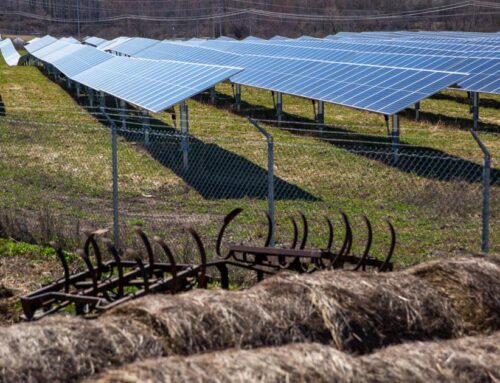President-elect Donald Trump may only have four years in power ahead of him — assuming American democracy holds — but these four years could prove critical in the fight against climate change. With the U.S. poised to not only withdraw from the climate fight but likely become a detrimental force in that effort, the rest of the world is sorting out how to soldier on without a major ally.
Trump has assured fossil fuel companies he’ll basically do whatever they want and promised publicly to become a “dictator” on his first day in office so he can “drill, drill, drill.” He has bashed the electric vehicle industry, seems convinced that wind turbines are the root of all evil, and has repeatedly called climate change a “hoax.” He seems to have no interest in being part of the international coalition that’s trying to combat the crisis and is expected to once again pull the United States out of the Paris climate agreement meant to prevent the global average temperature from rising 2 degrees Celsius above pre-industrial levels.
Under President Joe Biden, the U.S. made significant progress in the fight against climate change, and a substantial amount of what was started in his administration will likely continue on. But Trump will reverse the climate policies he can and prolong America’s reliance on fossil fuels. The European Union, China, and other major players in the climate fight have been paying close attention to what’s happening in American politics, as they always do, and they’re prepared to continue their climate efforts regardless of what the U.S. is doing.
“They’re probably thinking, ‘Oh god. Not again,’” says Sikina Jinnah, a professor of environmental studies and associate director of the Center for Reimagining Leadership at the University of California, Santa Cruz. “[Trump’s win] signals to not only Europe but the rest of the world that we’re an unreliable partner in multilateral negotiations — not only in the climate context but much more broadly.”
EU Climate Commissioner Wopke Hoekstra has said he still wants to see if he can work with Trump on certain climate issues, but the U.S. will likely recede from the global climate fight. Some officials from the EU have suggested other countries may fill that vacuum and become leaders in the renewable energy industry.
“I think there is a sense that Europe is going to do its own thing if the U.S. is not willing to cooperate,” says António Valentim, an assistant professor in European politics and policy at the London School of Economics and Political Science. “I think the U.S. is very likely to be seen as less of a leader, especially in climate issues, but also with other topics.”
Europe may become a less powerful actor on the world stage when it comes to climate issues without a powerful ally like the U.S., Valentim says, but the U.S. withdrawing from the climate fight could make some European nations more adamant about being proactive in addressing climate change and embracing renewable energy.
“I think that industrialized nations — that is, OECD countries minus the U.S. — will only continue their climate efforts to the extent that the renewable energy transition is now in the making and that in many places electrifying various parts of the economy will be cost efficient and security enhancing,” Federica Genovese, a professor of political science and international relations at the University of Oxford, tells Rolling Stone. “Now, I don’t think this is a pattern that will universally manifest across OECD countries. Some of them—like Australia, Canada—have large, aka relatively cheap, fossil fuel resources.”
Genovese says EU officials in Brussels are probably “not banking on U.S. climate leadership in the next four years,” but real action may also be a point of contention in Europe. The European Parliament itself has moved to the right in recent years, which could mean some climate efforts could start to stall at home.
Meanwhile, China, currently the world’s largest carbon emitter, has been making massive strides in the adoption of renewable energy. Whatever the U.S. decides to do regarding energy policy will have little effect on that, and China may take advantage of America’s inconsistency to become even more dominant in the global renewable energy marketplace.
“China is positioned to sort of take over as the global leader in climate politics,” Jinnah says. “China has emerged as the global leader in renewables, in electric vehicles. Over the last several years, they’ve taken a leadership role among countries in the Global South that it seems that they have a really strong identity politic with.”
China has become a major investor in renewable energy projects throughout Africa and other parts of the Global South. The country already produces 80 percent of the world’s solar panels, and it controls 60 percent of the world’s wind turbine production capacity. If the U.S. becomes less competitive in the renewable energy industry, it will likely benefit China the most.
The world doesn’t have an infinite amount of time to win the fight against climate change, and each year that is not used to its utmost potential increases the likelihood that humanity will face worse and worse effects of climate change.
Michael Oppenheimer, a professor of geosciences and international affairs at Princeton University, says that avoiding 2 degrees Celsius of warming is starting to look “pretty slim” at this point. He says humans find themselves approaching “more and more dangerous terrain.”
“These four-year intervals — where we switch from one attitude about climate to another — make it more and more likely that we’ll end up stabilizing the climate at a higher temperature,” Oppenheimer says. “I get very worried that there’s a real threat that we’ll exceed 2.5 degrees. When you get up to 3 degrees, that’s really bad. We have better do everything we can to make sure that we don’t exceed 2 degrees.”
Oppenheimer notes that when the world reaches 2 degrees of warming and beyond, countries could regularly face multiple extreme weather events simultaneously, such as a terrible heat wave while a hurricane or a massive wildfire is bearing down on the populace.
States, the private sector, and other entities will be able to continue their work in helping to fight climate change while the federal government is refusing to do so, but such a large problem is best addressed by large measures, not a patchwork of smaller projects. Trump won’t be able to stop the growth of the clean energy sector, but he may be able to slow it at a time when what’s needed is an urgent sprint away from the use of fossil fuels.
Instead, Trump is fully embracing the fossil fuel industry, effectively abdicating America’s role as a leader in the global fight against the climate crisis. Perhaps the U.S. will soon see growth in a new industry that has not yet been pondered by most: the dystopian bunker industry. Happy investing.



